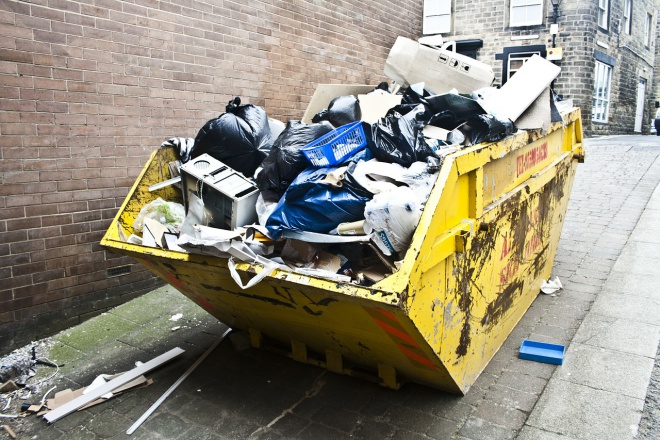What will future archaeologists discover about how you lived when they go through your garbage? Studying societies by investigating what people threw out was established as an academic discipline back in 1973, at the University of Arizona. They named it Garbology. So what will your garbage say about you, in a generation or two?
Hopefully, you won’t have left much trash behind for archaeologists of the future to sort through.
It takes some effort to get rid of the mess; less effort to maintain a waste-free life afterward. But if the mere thought of going through crowded bookshelves, disorganized files, a pantry stacked with expired foods, and – help, the closets – makes you feel like lying down, there’s help.
Professional organizers will come to your home and help you organize. They make you look at your stuff objectively, so you decide what to get rid of to get a decluttered life. Their services aren’t cheap, but the investment pays off long-term, in a junk-free home, a lighter frame of mind, and maybe even profit from selling some of your oldies but goodies.
But what happens with the stuff that you can’t sell? Most home organizers leave that problem with you. And it’s a headache, getting rid of it all. Let’s fill up garbage bags and just dump the stuff, you might think. That’s natural; everyone seeks the easy solution. But what’s not natural is the toxic results of landfill trash to the environment.
We’ve written before, often, about avoiding waste. But, you might say, I’m only one person/we’re only one family… how much damage, can our bit of waste do?
It turns out, quite a lot. Edward Humes, investigative journalist and author of Garbology, estimated that the average US citizen produces 102 tons of refuse in his or her lifetime. Whoops! That’s a lot of landfill. Here’s what can each one of us, personally, do to reduce that number.
It comes down to the environmentalists’ watchword: reduce, reuse, recycle.
Green Prophet interviewed Rebekah Saltzman, a professional home organizer based in Haifa. She stands out among other home organizers in that when helping clients reorganize, she introduces environmental awareness and methods to prevent their stuff winding up in landfills. Or at least, how to prolong discards’ lives to avoid the landfill as long as possible. In many cases, she takes the clients’ discards away herself, donating useable things to shelters and charities.
The heart of the matter, according to Saltzman, is owning fewer things. “Organizing isn’t about storing away all your things. It’s about disposing of what remains after you’ve decluttered” she says. She adds, “This goes hand in hand with Jewish values. Use what you have, and be happy with it.” (Saltzman is referring to Ethics of The Fathers, a compilation of Jewish ethical teachings, where one text reads, “Who is happy? He who is satisfied with his part.”)
How, practically, do you get rid of objects?
“If you decide to keep things, put them in a space where the real estate is less valuable (not in your closet) If they’re still useful, you should use them. If not, examine what about them you love. Why are you keeping them? If the reason is because they’re useful, well, that isn’t true, because you’re not using them! If the reason is that they have sentimental value, then see if taking a picture will do the trick. If not, then try making them into something else that’s useful.
“My philosophy is that you cannot organize clutter. This doesn’t mean we all have to be minimalist, it just means that living with less allows us to live our best life. It allows us to focus on living, and not on our stuff. So often our stuff holds us back, it overwhelms us and it takes over our lives. If we shared things, or discarded the things we no longer need so that others can use them, more people would have what they need, when they need it.”
What about discarding things with sentimental value?
“I encourage everyone to make a sentimental box,” says Saltzman. “The point of this box is to use as a catch-all for the decluttering process. At the end of the decluttering process I encourage everyone to go back to the box, take a second pass, see what they really need from it and keep only what they feel is essential. After that I encourage people to display the sentimental items. Because frankly, what good do they do you sitting in a box, if you don’t even remember why they’re there?”
About the inevitable packaging when we buy things, Saltzman says, “The way manufacturing is, there’s always going to be waste. Even if you buy from bulk bins, for instance, the products arrive in plastic bags. Recycling packaging is great. We can’t go entirely without packaging. But there’s always some leftover waste material that ends up in the landfill. We don’t think much about what we’re consuming; we should do our best to use as few resources as possible. Ultimately,” she adds, “recycling is just a band-aid over the larger problem. We need to resist the urge to buy things, and consume less.”
There are many ways to recycle objects. Keep in mind that one person’s junk is often another’s treasure. Donate clothes and household wares to a local charity. Sell things to thrift shops or a flea-market vendor. Swap clothes with friends. Shop at second-hand stores. Join an online group dedicated to selling and swapping. Here are some tips for online resources.
Even half-used bottles of shampoo, bath soap and cleaning products are welcome to shelters. Think creatively about objects you plan to discard. Is your last child finally out of diapers? Instead of dumping the remaining diapers, pin a notice up in your building or at your bus stop: 15 Free Diapers! Upgrading your PC, laptop or printer? Most towns have someone who accept your old electronics for charity or resale. In other words, it’s not only consuming less, personally, that keeps stuff out of landfills; it’s also helping others to use and reuse things before they finally wear out. See Karin’s post about how good clothes can go around. And here’s an inspiring post about a woman in India who hand-crafts beautiful clothes out of old materials.
So what legacy are you leaving to future generations? Hopefully, it’ll be the legacy of a life well lived, not the objects that you leave behind.
Saltzman teaches an online course called Conquer Your Clutter. Find it on Rebekahsaltzman.com and on Balaganbegone.com




